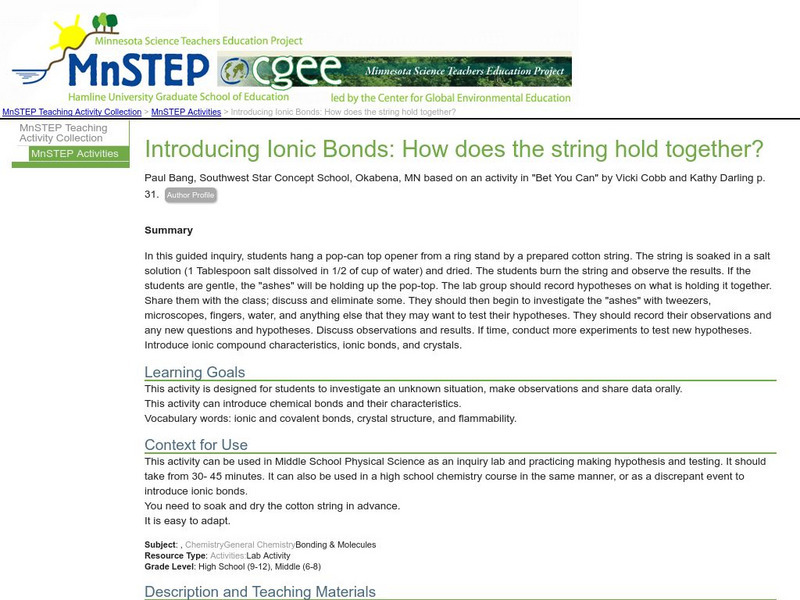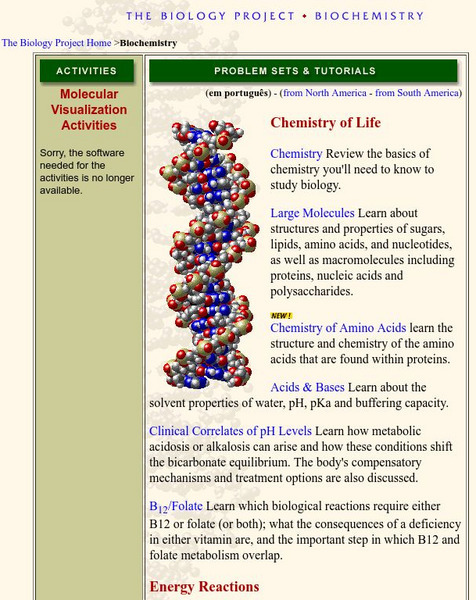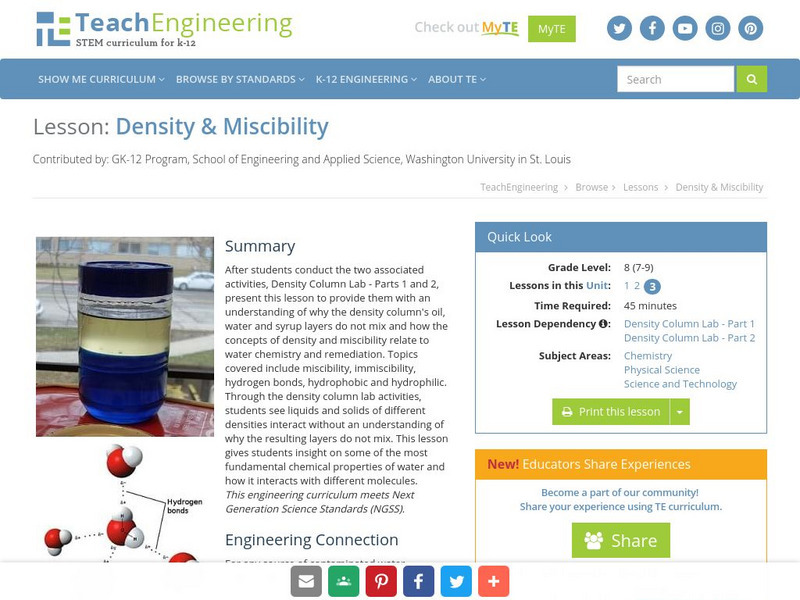Concord Consortium
Concord Consortium: Stem Resources: Chemical Bonds
By working through this web-based activity, students differentiate between ionic, non-polar covalent, and polar covalent bonds. Specifically, distinctions are made between bonding types based on orbital shapes and electronegativity...
Texas Instruments
Texas Instruments: Chemical Bonds
This StudyCards stack enables students to review the vocabulary that describes chemical bonding.
Concord Consortium
Concord Consortium: Stem Resources: Making and Breaking Bonds
A look at the processes of association and dissociation in chemical bonding. Observe simulations that show the influence of temperature on making and breaking of bonds, how diatomic molecules form, and what determines the speed of...
Science Education Resource Center at Carleton College
Serc: Introducing Ionic Bonds: How Does the String Hold Together?
This inquiry activity introduces chemical and ionic bonds and allows students to investigate an unknown situation, make hypotheses, and share data.
McREL International
Mc Rel: Glue Polymer (Whelmer #15 Learning Activity)
An easy to do activity that investigates the basic principles behind chemical bonding. The activity is written in lesson plan format that meets NSES standards.
University of Arizona
University of Arizona: Biochemistry
Problem sets, tutorials, and activities related to biochemistry.
Concord Consortium
Concord Consortium: Where Does All the Energy in an Explosion Come From?
In this module Activity 3 investigates What changes in energy occur when atoms rearrange during a chemical reaction? This activity explores the relationship between energy and chemical reactions. A bonus reading includes Energy and...
Texas Instruments
Texas Instruments: Naming and Writing Formulas of Acids
This StudyCard activity will enable students to practice naming and writing formulas for binary and non-binary inorganic acids. This activity will also allow students to practice naming acids found in aqueous solution as well as those...
Chemistry Collective
Chem Collective: Metal Ligand Binding
Use silver chloride to determine the binding constant for a metal ligand complex.
TeachEngineering
Teach Engineering: Density & Miscibility
After students conduct the two associated activities, Density Column Lab - Parts 1 and 2, present this lesson plan to provide them with an understanding of why the density column's oil, water and syrup layers do not mix and how the...
Science Education Resource Center at Carleton College
Serc: Floating Metal Pins Discrepant Event/guided Inquiry on Surface Tension
Through a combination of an interactive demonstration and guided inquiry, students learn the basic nature of surface tension in liquids.
Science Education Resource Center at Carleton College
Serc: Investigating Liquids: Color Changing Milk
In this chemistry lab, the students will investigate what happens to the liquids: milk and food coloring, when dish soap is placed on a Q-tip and then put into the solution.










